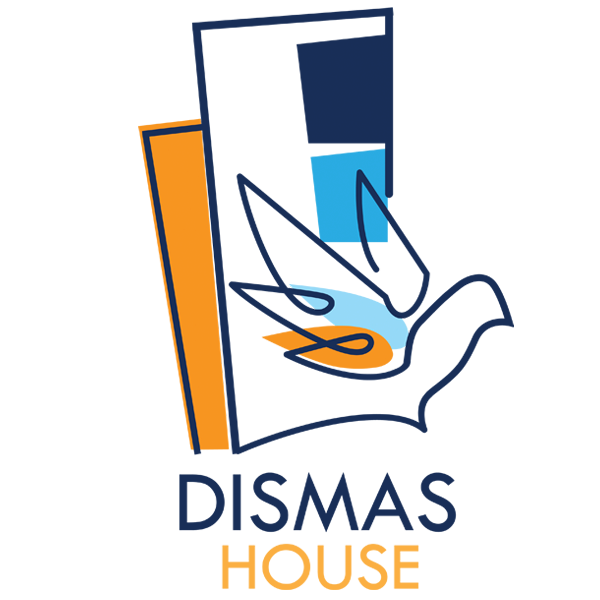Carlos’s Second Chance: A New Beginning After a Life Sentence
July 10, 2025

When Carlos walked out of prison, he was 47 years old. He had spent more than 30 of those years incarcerated—his entire adult life.
“I’ve been out for nine months,” he says. “And I have no complaints. My life is on track.”
Tumultuous Beginnings
For most of his life, being “on track” felt impossible. Carlos’s childhood was shaped by trauma, neglect, and survival.
“And I knew—when I started getting in trouble as a teen—I knew where it came from. I was angry.”
By the time he was 17, he was already on parole when he was arrested for the crime that would define the next three decades of his life: a murder he says he didn’t commit.
A System that Failed Him
“The codefendant—he did it,” Carlos explains. “He spoke to the DA first, took a deal. He got 45 years. He’s been out for 10. I got life.”
“He was a minor in the 1990s. He couldn’t afford a lawyer. He didn’t stand a chance,” says Emmeline, Carlos’s case manager at Dismas House.
Despite being a juvenile, despite not being the shooter, and despite lacking any real legal defense, Carlos was sentenced to life in an adult prison. And at first, he didn’t fully grasp what that meant.
“That sounds crazy, I know,” he says. “But I was still a kid. I didn’t understand the weight of a life sentence. At first, I was just… surviving.”
It took years for reality to settle in. But eventually, something shifted.
“About 15 years in, I made a decision,” Carlos says. “I knew I had to prepare, just in case I got out.”
He began studying and earning certifications. He distanced himself from prison politics and focused on growth. He learned how to live in a system built to keep him angry, broken, or buried.
Then, one day—after more than 30 years—he was granted parole.
A Glimpse of Hope
But freedom didn’t come instantly—he had to wait another six months, and a single misstep could cost him everything.
“It was the hardest part of the whole sentence,” Carlos says. “I couldn’t slip up. Not once. Only God got me through that.”
When he finally stepped through the front gates, Carlos was free, but the outside world was unrecognizable.
A New Life Ahead
“Those first few days, it was anxiety like I’d never known,” he says. “But after a week… it started fading. And I just started moving forward.”
At Dismas House, he found support—but he was guarded and was afraid to accept it initially.
“Trust didn’t come easily,” Emmeline remembers. “He couldn’t believe we were serious when we said we wanted to help.”
After 33 years in prison, kindness felt foreign. Trust didn’t come naturally. But slowly, it came.
“He had to do a lot of learning and unlearning,” Emmeline says. “Not just about the world, but how to exist in it. Relationships, technology, how to navigate life as a man who missed everything from adolescence to adulthood.”
Carlos had never driven a car. Two months ago, he got his driver’s license and bought his first vehicle. He’s worked steady jobs, saved money, and is planning for his own apartment—and a future.
His dream is to work in recovery services or mentor youth who are growing up like he did. While incarcerated, Carlos became a Certified Peer Recovery Specialist. Unlike traditional clinicians or counselors, CPRSs connect through shared experience. This peer-to-peer relationship can feel more relatable, especially for individuals who feel misunderstood or judged by systems of care. Now, he wants to use that training to become the support he never had.
“He talks a lot about mentoring youth,” Emmeline says. “He wants to provide the guidance he felt he didn’t have.”
Hope for Justice
Still, the shadow of his time incarcerated follows him. The charge—despite his insistence in which he wasn’t the one who committed the act—makes finding work harder. He’s in the process of pursuing exoneration with the help of Dismas House staff.
“It still holds me back,” Carlos admits. “But I’m not bitter. I’m not angry. I’m just trying to enjoy the life I have left.”
The transition hasn’t been easy, but he’s defying the odds.
“People don’t realize how hard it is,” Emmeline says. “But Carlos has done it, and he’s done it with intention. He’s grounded. He’s focused. He’s building something real.”
A Bright Future Ahead
When asked how he wants to be remembered, Carlos doesn’t hesitate.
“Loyalty. Goodness. That I’m a good person. That I made it out.”
And what does Dismas House mean to him?
“It’s a place of opportunity,” he says. “That’s all I needed—just one chance. And I ran with it.”
